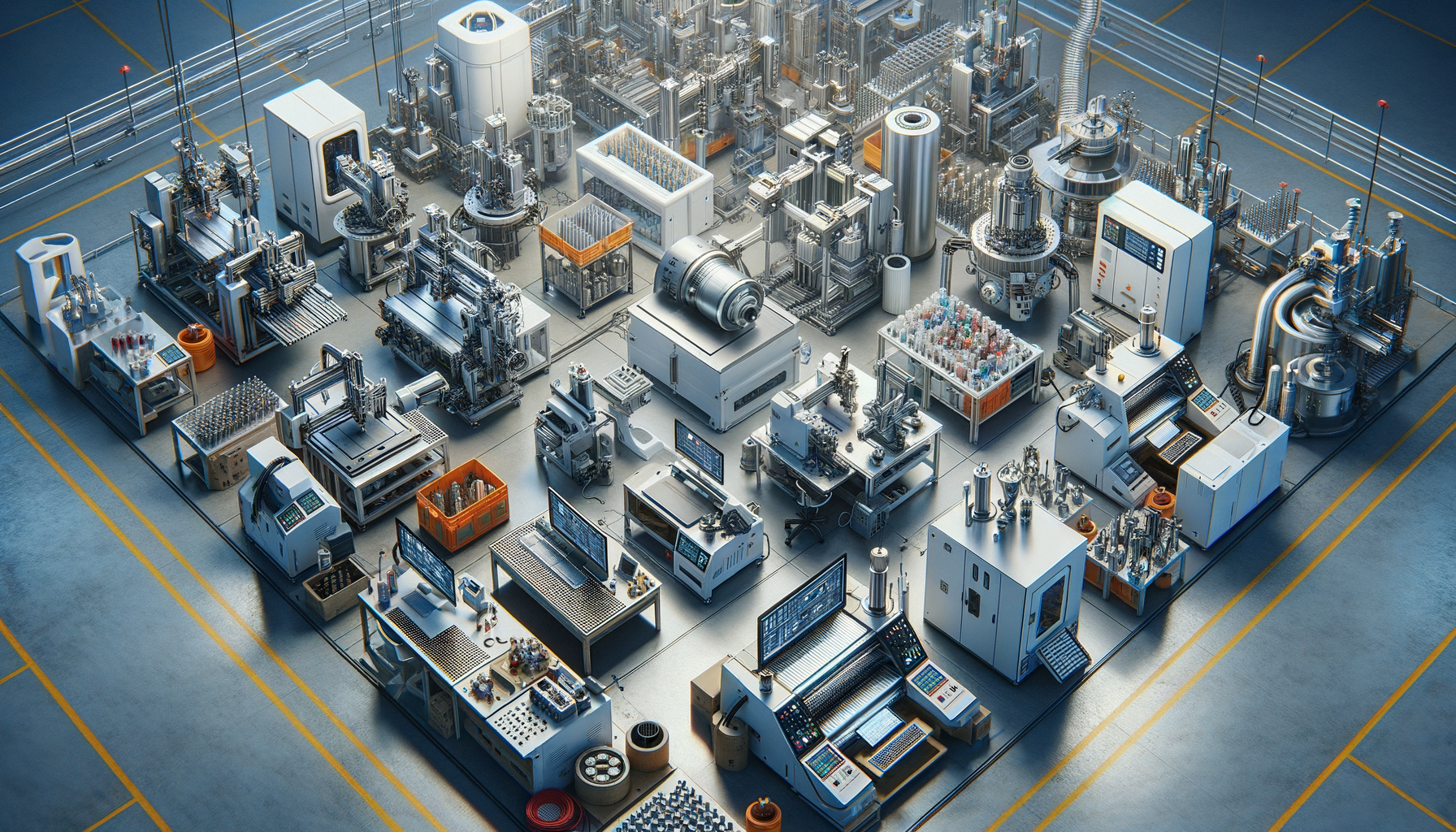Introduction to Industrial Machines
Industrial machines have become integral to both home and business environments, offering a range of benefits that enhance productivity and efficiency. These machines, designed for various applications, provide solutions that streamline tasks, reduce manual labor, and increase output. Whether you’re running a small business or managing household tasks, the right industrial machine can significantly impact your workflow.
In both home and business settings, the need for efficiency is paramount. Industrial machines cater to this need by automating repetitive tasks, thus allowing individuals to focus on more strategic activities. This article explores the various types of industrial machines available, their applications, and how they can be leveraged to optimize productivity.
Types of Industrial Machines
Industrial machines come in a wide variety, each designed to meet specific needs. Some of the most common types include:
- Manufacturing Machines: These are used in production processes to fabricate, assemble, or process materials. Examples include CNC machines, 3D printers, and assembly line robots.
- Construction Equipment: Essential for building projects, these machines include cranes, bulldozers, and excavators, which help in material handling and earth-moving tasks.
- Packaging Machines: These machines automate the process of packing goods, ensuring consistency and speed. They are widely used in food, pharmaceuticals, and consumer goods industries.
- Cleaning and Maintenance Machines: From industrial vacuum cleaners to floor scrubbers, these machines help maintain cleanliness and hygiene in large facilities.
Each type of machine is tailored to specific functions, making it crucial to select the right equipment based on the tasks at hand.
Applications in Business
In the business realm, industrial machines play a pivotal role in enhancing operational efficiency. For manufacturing businesses, machines such as CNC routers and laser cutters enable precision and speed, reducing production time and waste. These machines are particularly beneficial in industries where customization and detail are crucial.
In the logistics sector, automated sorting systems and conveyor belts streamline the movement of goods, ensuring timely delivery and reducing the likelihood of human error. Similarly, in the food industry, industrial mixers and ovens help maintain consistency and quality, crucial for brand reputation and customer satisfaction.
Businesses that invest in industrial machines often see a return on investment through increased production capacity, reduced labor costs, and improved product quality. This makes these machines indispensable assets in competitive markets.
Applications in Home Settings
While industrial machines are commonly associated with business environments, they also have practical applications in home settings. For instance, individuals who engage in home-based crafts or small-scale manufacturing can benefit from desktop CNC machines or 3D printers. These machines allow for the creation of custom items, from home decor to personalized gifts.
Moreover, industrial-grade sewing machines and embroidery machines enable hobbyists and entrepreneurs to produce high-quality garments and textiles. These machines often offer advanced features such as automatic threading and multiple stitch options, which are not typically found in consumer-grade models.
For those with large properties, industrial lawn mowers and pressure washers can significantly reduce the time and effort required for maintenance tasks, ensuring that home environments are well-kept and visually appealing.
Choosing the Right Industrial Machine
Selecting the right industrial machine involves evaluating several factors, including the specific needs of the task, the available budget, and the level of expertise required to operate the machine. Here are some considerations to keep in mind:
- Purpose: Clearly define what you need the machine for. This will help narrow down the options and ensure that the chosen machine meets your requirements.
- Budget: Industrial machines can be a significant investment. Consider both the initial cost and the long-term benefits, such as increased efficiency and reduced labor costs.
- Space and Infrastructure: Ensure that you have adequate space and the necessary infrastructure to support the machine’s operation.
- Training and Maintenance: Some machines require specialized training and regular maintenance. Consider the availability of training resources and maintenance services.
By carefully considering these factors, you can make an informed decision that aligns with your productivity goals and operational needs.
Conclusion: The Impact of Industrial Machines
Industrial machines are transformative tools that can elevate productivity and efficiency in both home and business settings. By automating tasks and enhancing precision, these machines allow individuals and businesses to focus on innovation and growth. Whether you’re looking to streamline production processes, maintain large properties, or engage in creative projects, the right industrial machine can make a significant difference.
As technology continues to advance, the capabilities of industrial machines are expanding, offering even more opportunities for optimization and innovation. Investing in these machines is not just about keeping up with industry standards, but about setting new benchmarks for productivity and excellence.




Leave a Reply